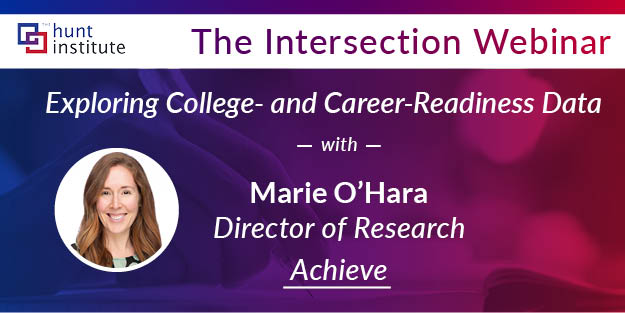

September 27, 2019

In the age of accountability in education, improving access to student outcome data has become a priority for states across the nation. Many institutions have come a long way in generating user-friendly state-, district-, and school-level report cards to inform students, families, and policymakers of student progress. However, the depth and accessibility of the data varies, limiting stakeholders’ ability to delve into important topics like understanding college and career readiness among high school students.
Achieve has been at the forefront of the push for more publicly accessible student data for over 20 years and seeks to help state policymakers, educators, and families understand high school graduation expectations and how they impact student success.
Earlier this year, Achieve consolidated state level data to create the College- and Career-Ready Student Outcomes Data Explorer. This interactive dashboard allows parents, educators, and policymakers to compare polices and results from all 50 states in order to ask tough questions about whether our students are ready to make the transition to college or career after graduating high school.
Achieve’s Director of Research, Marie O’Hara, led our discussion of this new resource and took us on a tour of the data explorer in our latest Intersection Webinar.
Exploring College- and Career-Readiness Data | Key Takeaways
We are grateful that Marie took the time to join us this week and look forward to future analyses of the data presented in the explorer. For our full conversation, please watch the webinar below.
Join us on Wednesday, October 9, 2019 at 1 p.m. as we welcome Dr. Deven Carlson, Associate Director for Education at the National Institute of Risk and Resilience at the University of Oklahoma, and Dr. Elizabeth Bell, Assistant Professor of Political Science at Miami University. We will learn about their new paper which was recently highlighted by the Brookings Institute, Socioeconomic-Based School Assignment Policy and Racial Segregation Levels: Evidence From the Wake County Public School System.
See you at The Intersection!

The Hunt Team